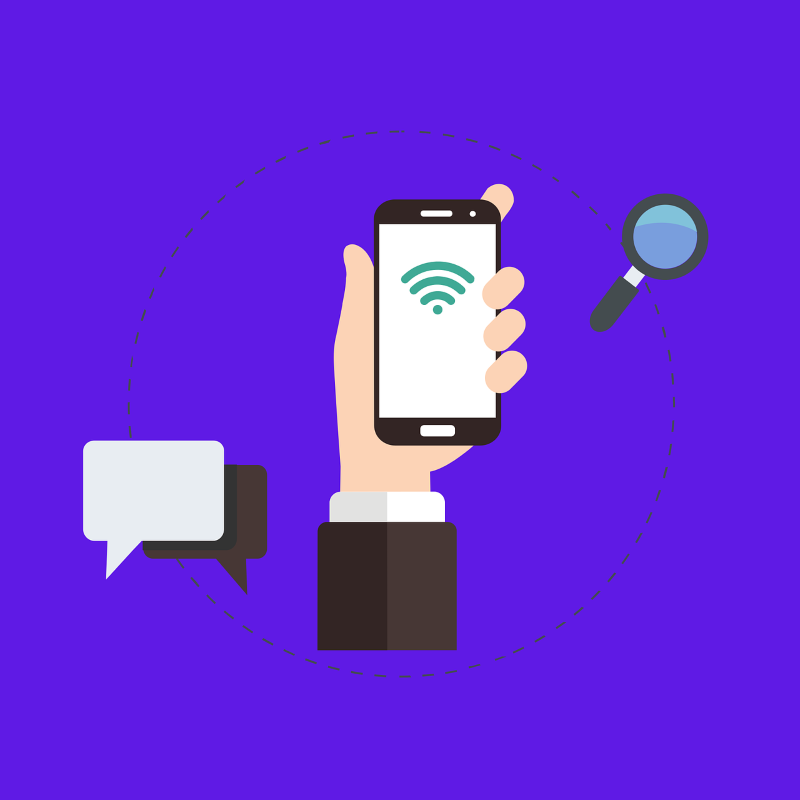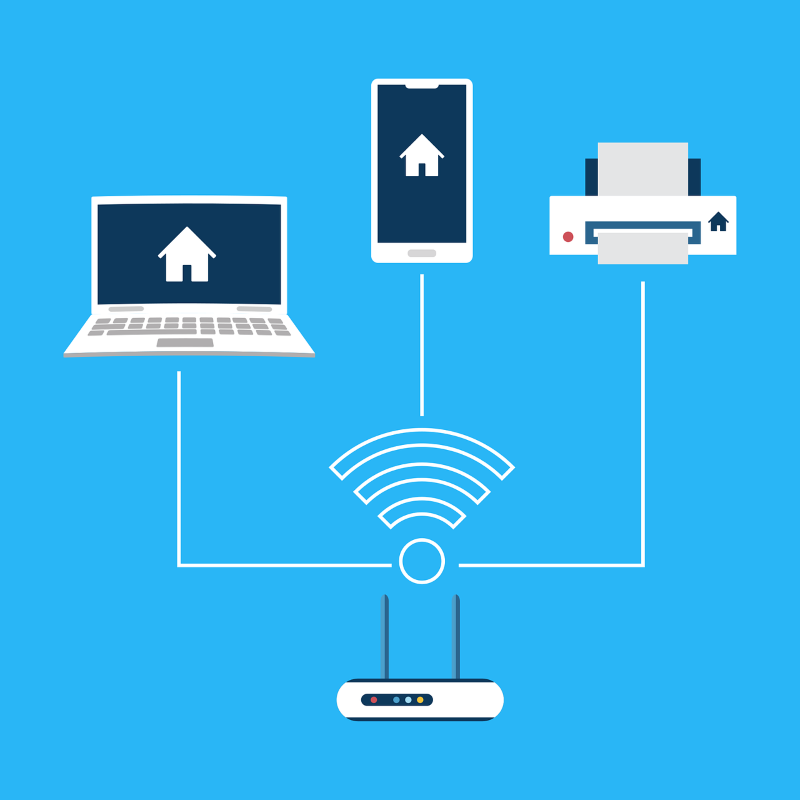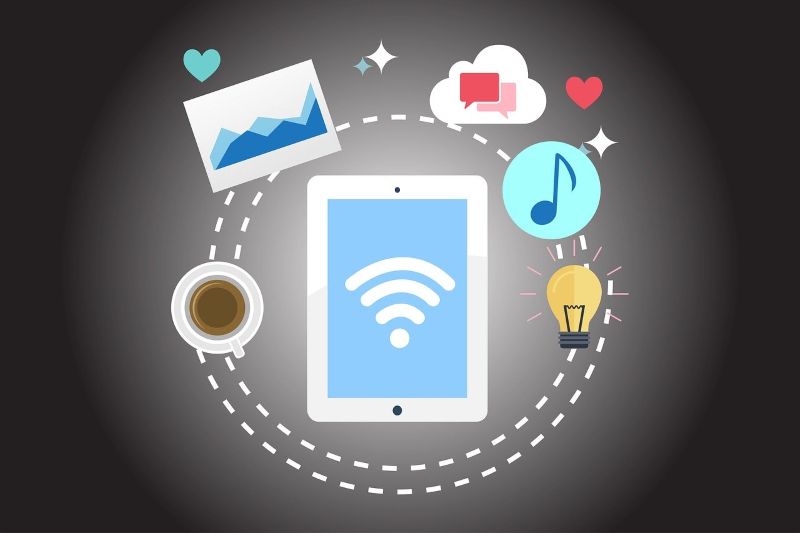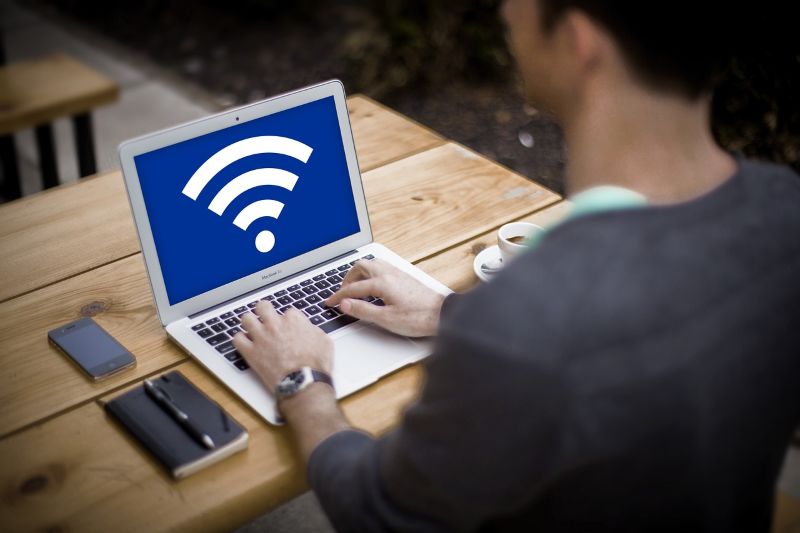Let’s be honest—most of us use WiFi every day without even thinking about it. Whether you’re binge-watching shows, playing online games, or working from home, you’re probably surrounded by WiFi signals all the time. But lately, you may have seen headlines or TikToks asking, “Is WiFi bad for your health?” That question can make anyone pause.
Let’s walk through the facts—friendly, simple, and clear. No scare tactics. No big tech talk. Just real information you can trust.

What Is WiFi and Why Do People Worry About It?
WiFi stands for “Wireless Fidelity.” It lets your devices connect to the internet using radio waves—like how radios or TVs pick up signals. These signals are called radiofrequency electromagnetic fields, or RF EMFs for short.
Some people worry that being around these signals for long periods could be harmful. They ask things like:
- Is internet bad for your health?
- Is WiFi Bad for Your Health?
- Are WiFi routers bad for your health?
It’s okay to ask. These are valid concerns, especially when we’re using tech all day. But let’s clear it up based on science, not fear.
What Science Tells Us So Far
Most studies say WiFi is safe when used normally. It gives off non-ionizing radiation, which is low-energy and doesn’t damage DNA. This type of signal is different from things like X-rays or UV light from the sun, which can be harmful in high amounts.
Groups like the World Health Organization (WHO) and the FDA have said that there’s no proof that WiFi causes health problems. According to WHO, as long as WiFi stays under safe limits, there’s no need to worry. These groups study real people and real data—not guesses.
So if you’re wondering, “Is 5G WiFi bad for your health?” or “Is WiFi Bad for Your Health?”—the same rules apply. These are newer versions of WiFi, but they still work in the same way using low-level RF waves. They’re just faster at sending data.
But What About The Symptoms Some People Feel?
Here’s where it gets tricky. Some people say they feel sick when they’re around WiFi or other wireless tech. They report:
- Headaches
- Trouble sleeping
- Dizziness
- Skin tingling
This is called Electromagnetic Hypersensitivity (EHS). But here’s the catch: studies haven’t found strong proof that RF signals cause these symptoms. In tests where people didn’t know if the WiFi was on or off, they still felt the same.
It doesn’t mean their symptoms aren’t real. Is WiFi Bad for Your Health.

What About Newer Tech Like WiFi 7 or Fiber Internet?
It’s smart to ask about newer versions. Let’s break it down:
- WiFi 6 and WiFi 7: These are faster, newer forms of wireless internet. They use the same type of safe RF waves as old WiFi. So, if you’ve wondered, “Is WiFi 7 bad for your health?”—the short answer is no.
- Fiber Internet: This uses light through glass cables to send data—not RF signals. So it doesn’t add to your WiFi exposure. If you’re asking “Is fiber internet bad for your health?”, you can relax. It’s actually wired and doesn’t produce EMF in the same way.
- WiFi Boosters and Routers: These help your signal reach farther. But people also ask, “Is WiFi Bad for Your Health?” or “Are WiFi routers bad for your health?” These devices don’t give off higher levels than your phone. As long as they meet safety rules, they are not dangerous.
How To Limit WiFi Exposure If You’re Still Worried
Even though science says it’s safe, some people still like to play it safe. And that’s totally fine. Here are easy things you can do:
- Turn off WiFi at night – Is WiFi Bad for Your Health, switch it off.
- Keep your router out of your bedroom – distance matters.
- Use wired connections – like Ethernet cables for your PC or gaming console.
- Put your phone on airplane mode while sleeping – one less signal around you.
- Use speaker mode or wired headphones for calls – reduces close-range exposure.
None of these tips cost money, and they can help if you just want to feel better.
What Local People Think (From Places Like Dhaka or Chattogram)
In places like Dhaka, Cox’s Bazar, or Chattogram, more homes are getting high-speed internet every year. Kids use WiFi to attend online classes. Parents work remotely. But not everyone trusts tech right away.
Many Bangladeshi parents, especially older ones, ask things like “Is internet bad for your health?” or “Is WiFi Bad for Your Health?” It’s totally normal to ask questions before bringing new tech into your home.
The best answer? Teach safe use. Balance screen time. Keep routers away from beds. Show them you’re careful but informed.

FAQs
Q1: Is WiFi bad for your health long term?
A: No clear evidence shows that normal WiFi use causes long-term health issues. It uses non-ionizing radiation, which is considered safe at current exposure levels.
Q2: Is 5G WiFi more dangerous than older WiFi?
A: No. 5G WiFi still uses non-ionizing radiation. It’s faster, but that doesn’t mean it’s more harmful.
Q3: Can WiFi cause sleep problems?
A: Some people say yes, but studies haven’t proven that WiFi directly affects sleep. If you think it does, turn off your router at night to see if it helps.
Q4: Is fiber internet bad for your health?
A: No. Fiber internet uses light, not RF signals, so it doesn’t give off electromagnetic radiation like WiFi does.
Q5: Are Is WiFi Bad for Your Health?
A: No. They follow strict safety limits. The energy they give off is far below levels that could cause harm.
Final Thoughts
So, is WiFi bad for your health? The answer is—probably not. Big groups like WHO and the FDA say it’s safe under normal use. WiFi, 5G, routers, boosters, and even newer versions like WiFi 7 follow rules made to protect you.
Still, if you’re worried, it’s okay to take small steps to limit your exposure. Being cautious is fine—just make sure your choices come from facts, not fear.
This isn’t about ditching tech—it’s about using it wisely. So go ahead, scroll your feed or join that Zoom call. Your WiFi is probably safe, and your awareness makes you smarter—not scared.

